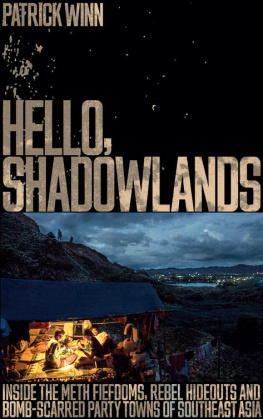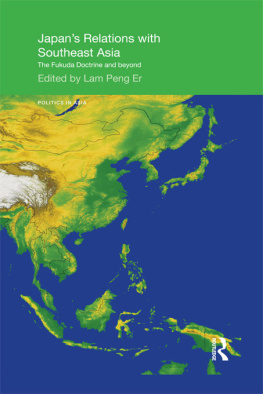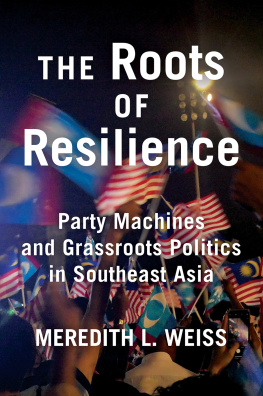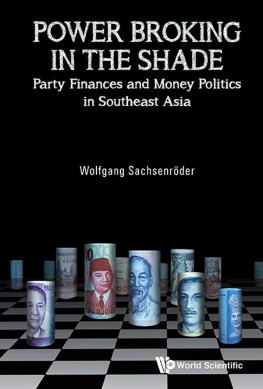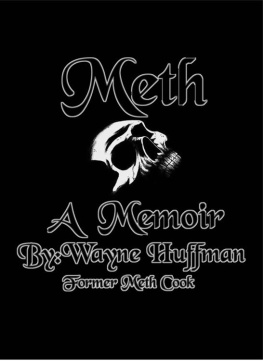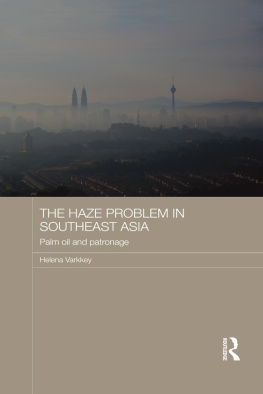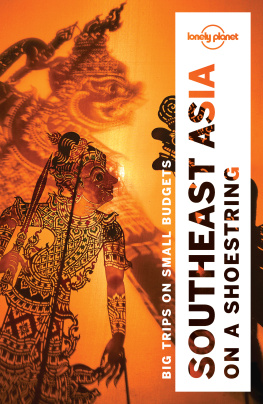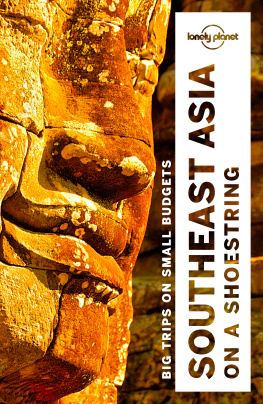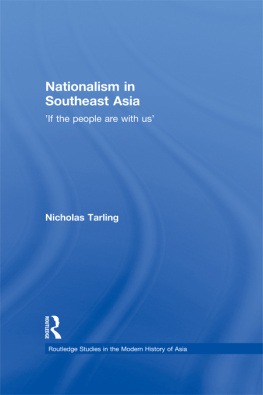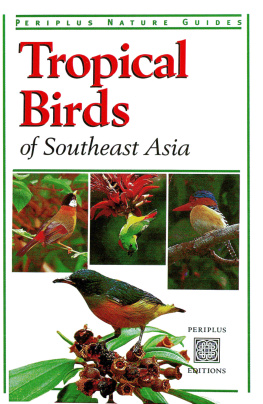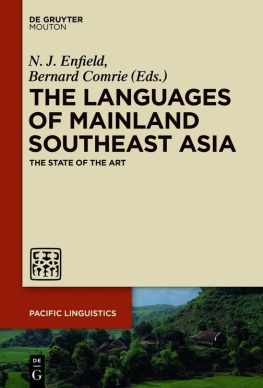Through gripping narrative vivid character portraits and deft anecdotes, Winn offers the reader an intimate, indelible portrait of a major world region in the throes of serious social change.
Alfred W. McCoy, author of The Politics of Heroin: CIA Complicity in the Global Drug Trade
Drawing on a decade of on-the-ground reporting in Southeast Asia Hello, Shadowlands is a sweeping work of investigative journalism that reads like a thriller you cant put down. Winn demonstrates how the breakneck economic growth that has lifted so many fortunes in Southeast Asia has also set the stage for a new golden age of drug trafficking aided by corruption, despotism and the absence of law a quintessential read for anyone who wants to understand the dark side of Southeast Asias economic gains.
Megha Rajagopalan, China bureau chief, Buzzfeed News
Brilliantly crafted and thrilling to read a page-turner with soul.
Tom Vitale, director of Anthony Bourdain: Parts Unknown
Patrick Winn writes in a vibrant, readable style, uses years of hardcore field reporting and adds thought-provoking analysis to expose a side of global crime that we all need to better understand. His vivid descriptions take you deep into surreal and at times heartbreaking worlds but he also steps away to give wider meaning to these tales and their place in the economic and political systems. Anyone who wants to make sense [of] modern global capitalism needs to read it.
Ioan Grillo, author of El Narco and Gangster Warlords
Not inappropriately billed as Fear and Loathing meets McMafia, this is a compelling expose of Southeast Asias criminal underworld, and the dark underbelly of some popular holiday destinations by an award-winning US journalist resident in Thailand the chapters on Myanmar [are] particularly illuminating.
The Bookseller
Dedicated to Pailin
Contents
- CHAPTER I: Hot Pink Speed
Location:Myitkyina, Myanmar
Location:Kachin State, Myanmar
Where vigilantes rebel against narco-kings
Location:Manila, The Philippines
Where a female-run crime ring sells forbidden elixirs
Location:Bangkok, Thailand and Seoul, South Korea
Where men pay to cavort with North Koreas regime-trained hostesses
Location:Sungai Golok, Thailand
Where Islamic rebels terrorize Asias strangest party town
Location:Nhi Trung, Vietnam
Where Viet Cong vets ambush dog thieves under the starlight
I n 2008, I moved to Bangkok with my girlfriend, now wife, who is also a journalist. Both of us were refugees from a collapsing newspaper industry. We sought to escape American newsrooms that were being gutted by layoffs and permeated by gloom a dreary landscape against which to spend the final years of our twenties.
So we embarked on new lives as freelance correspondents based in Thailands capital. We began in a leaky shophouse, our meager earnings sustaining a glitchy internet connection and a diet of cheap noodles.
I was drawn towards the intensity of 21st-century Southeast Asia, a region seemingly destined to grow more prosperous despite its war-wracked history. My wife Pailin Wedel a photojournalist originally from Bangkok was keen to properly document a region that is so often depicted through crude stereotypes.
For her, this was a homecoming. But for me, it was an odyssey into a world utterly unlike my own. I loved it instantly and threw myself into learning the Thai language. My first years were spent badgering street vendors with tortured grammar, practicing my lilting tones in the shower and watching karaoke DVDs of Thai country singers to absorb bits of rural dialect.
Ten years on, what was unfamiliar has become mundane. Eating a grilled catfish with my bare hands used to be thrilling. Now thats my go-to breakfast. But Ive yet to grow bored. That hunger to better understand my adopted home still gnaws at me.
Southeast Asia is heaven for the compulsively curious. This is a world in vibrant flux. Old codes are clashing with modern appetites. The laboring classes are scrambling for cash and status like never before. Meanwhile, the ruling elites grow steadily more cozy in their authoritarianism and less in thrall to old allies (and former colonial tormenters) in the Western hemisphere.
There is endless drama to document and, for every scintilla of effort Ive put into understanding the region, Ive been repaid twice over with astonishing stories. I continue to meet people farmers and aristocrats alike whose lives demand a thorough telling.
My job, as I see it, is tracking down compelling characters and trying to crystallize their experiences into words. The goal is to capture a twinkle of their humanity or even just a small episode in their lifes journey and make it available to the world at large. A bit melodramatic, I know. But on my less cynical days, I like to think this work allows readers to take in the splendor and struggles of people theyd never know otherwise.
Over the last decade Ive covered coups, street cuisine, ethnic cleansing, pop culture fads and more protests than I can recall. But Ive always gravitated back to one subject: organized crime.
This is not a fixation on deranged personalities. Nor is it a true crime-style attraction to the gritty details of shocking murders. Quite the opposite, actually. Im interested in well-meaning, logic-driven people who choose to live outside the law.
I want to understand all of the forces that pushed them towards those often wrenching decisions to go underground those little moments that progressively turned them into heroin dealers or rebels or bomb-makers. Im fixated on the economic, cultural and historical currents that have washed trouble into their lives.
Ive found that lawlessness itself is often what pushes people over the edge. How do you react when your village or hometown is repeatedly besieged by criminal syndicates and the police ignore your pleas for help?
Worse yet: what if your government, the appointed arbiter of justice, is actually in collusion with your tormentors?
Do you flee?
Plot vigilante resistance?
Join an armed rebellion?
Or do you seek your own foothold within the underworld so that you might become predator instead of prey?
In the absence of law, people can be driven to make radical decisions. But once closely examined, the choices of those enmeshed in Southeast Asias underworld meth barons, dodgy cops, the traffickers and the trafficked start to make perfect sense.
This pursuit has drawn me into all sorts of jungle hamlets, urban pockets and remote border towns. These are Southeast Asias shadowlands: zones where the authorities allow organized crime to thrive. They are seldom illuminated to the outside world and the lives of their inhabitants are chronically ignored.
This book doesnt attempt to catalogue every single crime ring in Southeast Asia. Nor have I prioritized only the largest and most fearsome groups. Ive instead opted to profile a number of syndicates in Myanmar, Thailand, Malaysia, Vietnam and the Philippines that, upon examination, tell us something indispensable about their surroundings.
Many of these syndicates actually operate with the unofficial blessing of the authoritarian states in which they are found. They flourish in spots where officials choose not to enforce order or at least not as they should. Instead, local police will often function as a protection racket for select criminal operations. In the most forsaken quarters Myanmars northern hills, for example the state actually allows drug barons to rule over its citizens like feudal lords.

